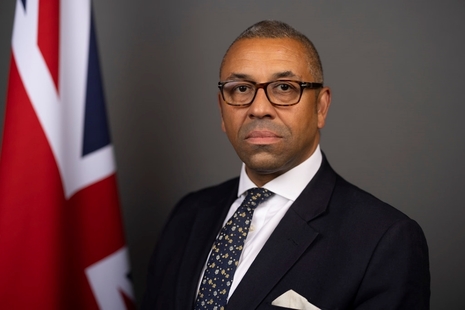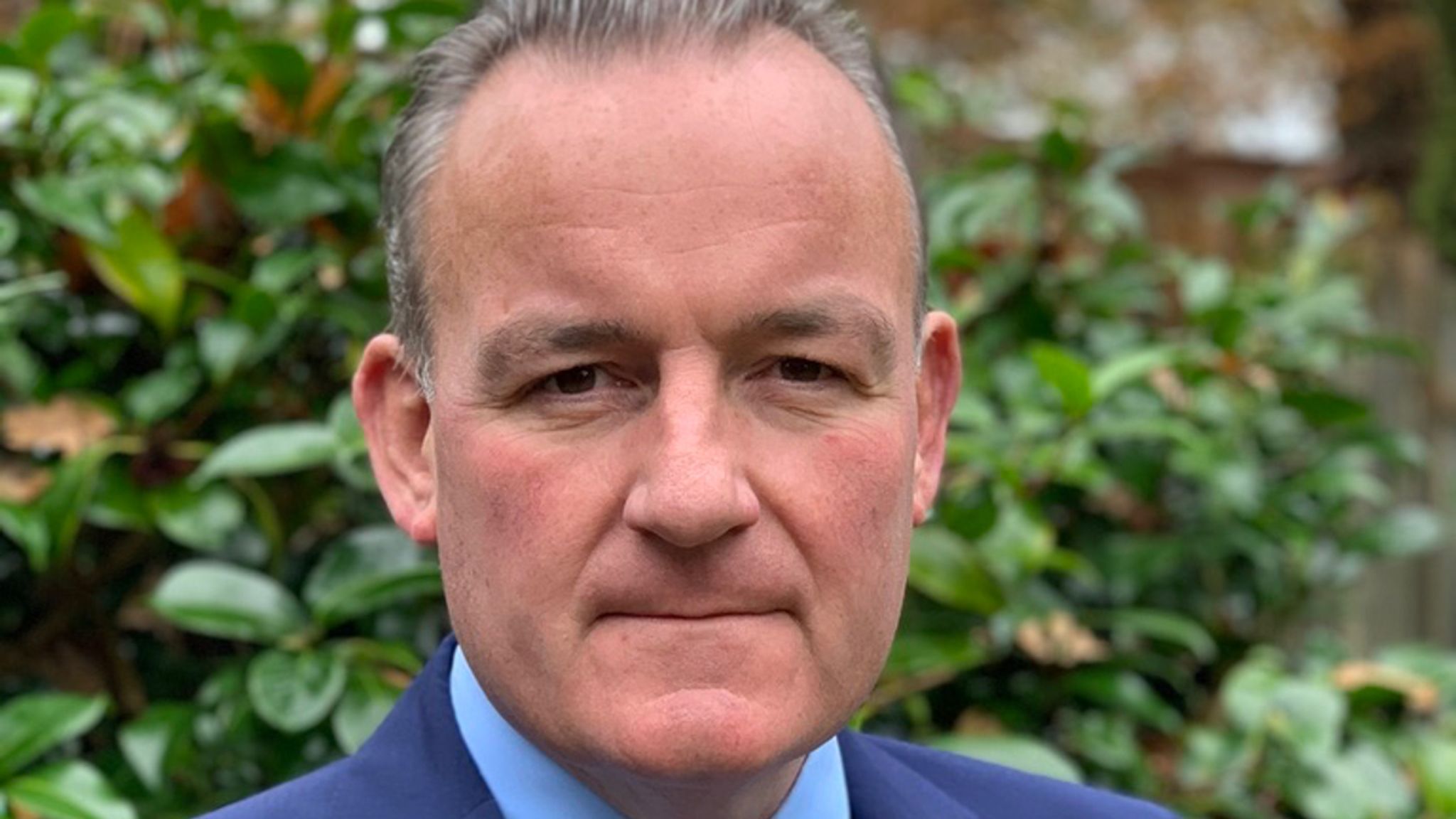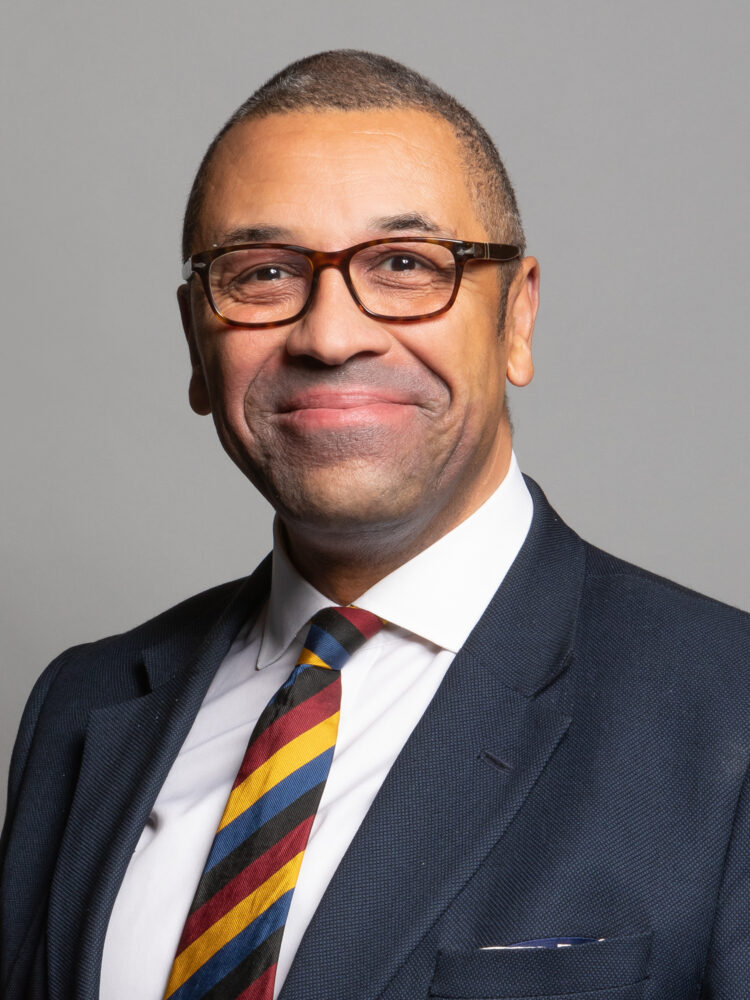By Gabriel Princewill-
Home Secretary, James Cleverly, (pictured) should be held to account for the series of security lapses surrounding Britain’s boarder control exposed by Independent Chief Inspector of Borders and Immigration, David Neale.
Within 24 hours of the revelation, Mr Neale was fired, and another 24 hours would not pass before the Home Office promised to publish the former chief inspector’s reports, which was kept quiet behind close doors.
Unknown at the moment is whether Mr. Neal first reported the worrying concerns of lapses in Britain’s boarder higher up the chain before he embarked on an all out revelation of Britain’s embarrassing porous boarders.
If he did not, he may reasonably be deemed to have been disloyal by not highlighting his grave concerns internally in pursuit of speedy rectification of the situation.
Notwithstanding this, the Home Secretary still has a lot of explaining to do. How soon such explanation is presented, if it is made, is yet to be seen.
In the intricate tapestry of government responsibility, few threads are as vital and far-reaching as those woven into the portfolio of the Home Secretary.
Charged with safeguarding the nation’s security, maintaining law and order, and upholding the integrity of its borders, the Home Secretary stands as a sentinel at the gates of the realm, tasked with protecting its citizens from threats both foreign and domestic.
Against this backdrop of solemn duty and profound responsibility, the recent revelations of systemic failures in border security, exposed by mr Neal, cast a shadow of doubt and dismay.
As the findings of Mr. Neal’s investigation lay bare the vulnerabilities in the UK’s immigration infrastructure, the spotlight inevitably turns to Cleverly- the individual entrusted with overseeing this critical domain.
The Home Secretary plays a pivotal role in shaping and executing immigration and border security policies.
Endowed with considerable authority and discretion, the Home Secretary wields the power to set strategic priorities, allocate resources, and establish the regulatory framework governing the UK’s border operations.
Indeed, the Home Office, under the stewardship of the Home Secretary, exercises direct oversight of the UK Border Force, the frontline agency tasked with enforcing immigration controls and protecting the nation’s borders.
The Home Secretary exerts significant influence over the functioning of this crucial arm of government, from the setting of operational targets to formulating policy directives.
In light of this expansive remit and the weighty responsibilities it entails, the notion of holding the Home Secretary to account for failings in border security assumes heightened significance.
James Cleverly, as the incumbent Home Secretary, cannot evade scrutiny or absolve himself of responsibility when the integrity of the nation’s borders is called into question.

Influential: Home Secretary James Cleverly has a lot to answer for
Against this backdrop, the findings of Mr. Neal’s investigation serve as a damning indictment of the Home Office’s stewardship under James Cleverly’s leadership.
The revelation that ‘high-risk’ aircraft were landing in Britain without undergoing essential security checks underscores a glaring lapse in border enforcement protocols—one that occurred under the expected watchful eye of the Home Secretary.
Moreover, the sheer magnitude of the oversight—hundreds of private jets evading passport controls at a prominent London airport—raises troubling questions about the efficacy of the Home Office’s oversight mechanisms, and the adequacy of its risk assessment protocols.
In potentially failing to prevent the entry of individuals with criminal or extremist affiliations, the Home Secretary’s office has fallen short of its primary duty to protect the safety and security of the British public.
Beyond the immediate ramifications of this breach in security lies a deeper concern: the erosion of public trust in the government’s ability to fulfill its core obligations.

Fired: Former Independent Chief inspector exposed security lapses
In an era marked by heightened threats of terrorism, organized crime, and illegal immigration, the need for robust border controls has never been more pressing.
Yet, the revelation of systemic failures in border security undermines the confidence of citizens in the government’s capacity to address these existential challenges effectively.
In the court of public opinion, accountability is not a mere formality but a sacred covenant between the governed and their representatives.
Solemn Responsibility
When entrusted with the solemn responsibility of safeguarding the nation’s borders, the Home Secretary assumes a sacred trust—a covenant that demands unwavering fidelity to the principles of transparency, integrity, and accountability.
In the wake of Mr. Neal’s revelations, the onus is squarely on James Cleverly to demonstrate leadership and accountability in addressing the deficiencies in border security exposed by the report.
This entails more than mere contrition or expressions of regret.
It demands concrete action to rectify systemic failures, strengthen oversight mechanisms, and restore public confidence in the government’s ability to protect the nation’s borders.
Moreover, the imperative of accountability extends beyond the realm of symbolic gestures or political expediency—it speaks to the very essence of democratic governance.
In a democracy founded on the principles of accountability and transparency, no individual, regardless of rank or stature, is immune from scrutiny or exempt from the consequences of their actions.
James Cleverly must rise to the occasion and embrace the mantle of accountability with humility and resolve.
Only by holding the Home Secretary to account for the failings exposed by Mr. Neal’s report can we reaffirm our commitment to the principles of justice, transparency, and the rule of law that lie at the heart of our democratic values.




